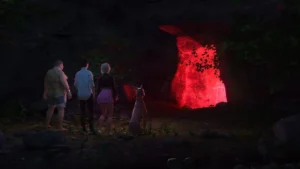
Apocalust
Play Apocalust
Apocalust review
An In-Depth Look at the Gameplay, Features, and Player Insights of Apocalust
Apocalust is a unique interactive game that blends immersive storytelling with engaging gameplay elements. This guide dives into the core aspects of Apocalust, highlighting its gameplay, character interactions, and the choices that shape the player’s journey. Whether you’re a newcomer or looking to deepen your understanding, this article offers practical insights and personal reflections to enhance your experience with Apocalust.
Understanding Apocalust: Gameplay and Features
What Makes Apocalust Unique?
Picture this: You’re scavenging a crumbling hospital for antibiotics when your companion—a cynical ex-medic you’ve bonded with over campfire stories—collapses from infection. Do you risk your last bullet to mercy-kill them? Or carry their limp body into zombie territory? 😱 That gut-wrenching Apocalust gameplay moment isn’t scripted. It’s your call. And that’s why this game rewrites the survival-horror playbook.
Unlike other dystopian shooters, Apocalust turns emotional calculus into its core weapon. Every dialogue choice, resource trade, or alliance reshapes the wasteland through interactive storytelling Apocalust pioneers. I once traded medicine for intel, only to watch a faction I’d neglected burn down our shelter days later. 💔 The game’s “Fractured Trust” AI remembers everything—even that ammo you hoarded in Chapter 1 bites back when allies abandon you in Chapter 5.
Key Apocalust features that redefine immersion:
– Dynamic World Shifting 🔄: NPCs migrate, factions gain/lose territory, and environments decay between play sessions. Logging in after 48 hours? That bridge you needed might be rubble.
– Bio-Responsive Sound Design 🔊: Your controller’s heartbeat vibrations sync with your character’s pulse during stealth sequences. Panic = louder footsteps. Genius!
– No “Good” Endings ⚖️: My first playthrough’s “victory” left me guilt-ridden for sacrificing a child to save my squad. Brutal? Absolutely. Unforgettable? Hell yes.
Core Gameplay Mechanics
At its heart, Apocalust gameplay merges survival tactics with relationship tetris. Think The Last of Us meets Oregon Trail with a dash of Black Mirror. Your backpack isn’t just for gear—it’s a psychological ledger.
Resource Allocation is brutal. That bottle of water? Drink it to boost stamina for combat 🥤, give it to a feverish ally to boost loyalty ❤️🩹, or trade it for bullets 🔫. But beware: “consequence stacking” means skipping meals today triggers accuracy penalties tomorrow. During a raider ambush, my malnourished character fumbled a reload animation—costing two allies. 😤
Combat uses Adaptive Threat Response 🧠:
– Stealth: Noise distractions work twice before zombies learn your tricks
– Guns Blazing: Attracts hordes but earns “ruthless” reputation perks
– Diplomacy: Some bosses can be bribed or blackmailed if you’ve dug up their secrets
But the crown jewel? Apocalust player choices in dialogue. Unlike binary “nice/mean” wheels, you negotiate using:
– Leverage (blackmail material)
– Debts (past favors)
– Fear (threats backed by your reputation)
| Mechanic | Function | Story Impact |
|---|---|---|
| Trust Meters | Tracks loyalty per ally via choices | Unlocks betrayal options or sacrifice scenes |
| Memory Fragments | Collectible backstory items | Changes faction leader motivations |
| Infection System | Wounds decay without treatment | Forces moral triage; alters ending paths |
Pro Tip: > Hoard lockpicks early! I missed 30% of Act 2’s lore because I prioritized food over scavenger tools. 🔑
Character Dynamics and Story Progression
Remember that ex-medic I mentioned? Here’s where character relationships Apocalust gets messy. Elena hated my loot-hoarding habits but loved when I saved kids. When she got bitten, I had minutes to decide: use our last cure on her, or let her turn to preserve it. I chose the latter. What followed? Her brother joined my enemies, rigged my safehouse with traps, and I got the “Lone Wolf” ending—devastating but poetic. 😭
This narrative progression Apocalust delivers thrives on “butterfly effect” design. Small gestures snowball:
– Giving extra rations to a quiet engineer unlocked hidden weapon blueprints later
– Ignoring a dying stranger led to them reappearing as a frenzied mini-boss! 😱
Relationships evolve via:
– Campfire Conversations 🔥: Share backstories to reduce group stress levels
– Gift Crafting 🎁: Turn scrap into personalized trinkets (e.g., music boxes for trauma-soothing)
– Conflict Mediation ✋: Stop infighting by picking sides—permanently altering questlines
My biggest gameplay mechanics Apocalust advice? Play liar. In my 2nd run, I pinned two factions against each other with faked evidence, then looted their corpses. Chaotic? Sure. But I unlocked an achievement for “Machiavellian Schemer”! 👑
Ultimately, interactive storytelling Apocalust makes you complicit. There are no spectators here—just survivors sculpting tragedies with bloodied hands. And honestly? We wouldn’t want it any other way. 💀
Apocalust offers a rich and engaging experience through its interactive gameplay and dynamic storytelling. By understanding its core mechanics and character interactions, players can fully immerse themselves in the game’s world and make choices that truly matter. Whether you’re exploring the narrative for the first time or revisiting it to uncover new paths, Apocalust provides a compelling journey worth experiencing. Dive in and discover the unique adventures that await.




















